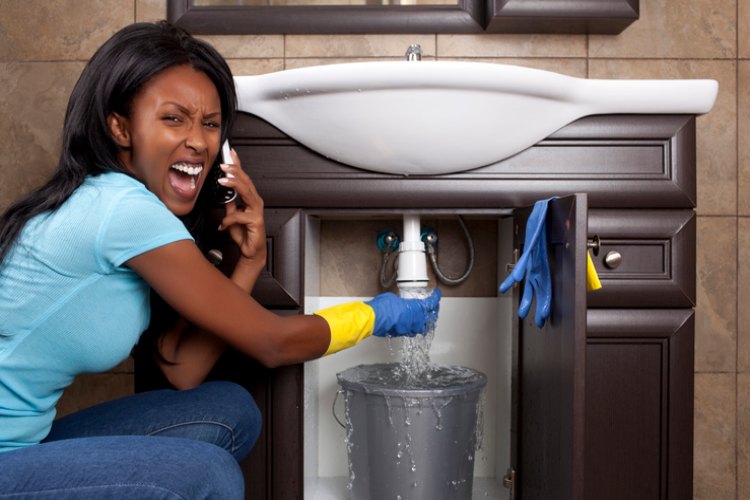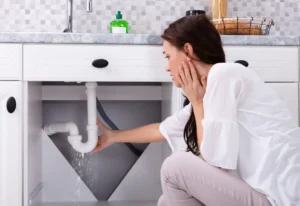
Plumbing emergencies are not only inconvenient but can also cause significant damage to your home and property if not addressed promptly. From burst pipes to overflowing toilets, each issue requires immediate attention to prevent further complications. Understanding these emergencies, knowing how to respond, and implementing preventive measures can save you time, money, and stress. This comprehensive guide will delve into common plumbing emergencies, how to handle them, and effective prevention strategies.
What Are Plumbing Emergencies?
Plumbing emergencies are sudden, unexpected situations that can lead to severe damage or risk if not promptly addressed. These issues typically require the expertise of an emergency plumber to mitigate damage and restore normal function. Common plumbing emergencies include:
- Burst Pipes
- Overflowing Toilets
- Leaking Faucets
- Sewer Line Backups
- Water Heater Failures
- Clogged Drains
Burst Pipes
Burst pipes are a serious plumbing emergency that can lead to significant water damage. Pipes may burst due to various reasons, including freezing temperatures, high water pressure, or aging infrastructure. A burst pipe can flood your home, damaging floors, walls, and personal belongings, and may lead to mold growth if not promptly addressed.
Shut Off the Water Supply
The first and most crucial step is to turn off the main water supply to stop the flow of water. This action will help prevent further flooding and damage.
Turn Off Electricity
If the burst pipe is near electrical outlets or appliances, turn off the electricity to avoid electrical hazards.
Contain the Water
Use buckets, towels, or any available materials to contain the water and minimize damage to your flooring and furniture.
Call a Professional
Contact an emergency plumber as soon as possible to repair or replace the damaged pipe. They will assess the situation and provide a long-term solution to prevent future issues.
Overflowing Toilets
An overflowing toilet is a common yet distressing plumbing emergency. Overflows can occur due to blockages in the toilet or sewer line, or issues with the toilet’s internal mechanisms. An overflowing toilet can cause water damage to your bathroom floor and pose sanitation risks.
Turn Off the Water Supply
Locate the shut-off valve behind the toilet and turn it off to stop the flow of water.
Remove the Clog
Use a plunger to attempt to clear the blockage. Ensure the plunger forms a good seal around the toilet bowl for effective results. If a plunger is ineffective, try using a toilet auger to reach deeper clogs.
Avoid Chemical Cleaners
Avoid using chemical drain cleaners, as they can damage the toilet and are not always effective for severe clogs.
Seek Professional Help
If the toilet continues to overflow or if you suspect a more serious issue, contact a plumber to diagnose and resolve the problem.
Leaking Faucets
 Leaking faucets, while often less urgent than other plumbing emergencies, can still cause significant issues over time. Persistent leaks can lead to increased water bills, potential water damage, and a general inconvenience. Leaks typically result from worn-out washers, damaged O-rings, or faulty valve seats.
Leaking faucets, while often less urgent than other plumbing emergencies, can still cause significant issues over time. Persistent leaks can lead to increased water bills, potential water damage, and a general inconvenience. Leaks typically result from worn-out washers, damaged O-rings, or faulty valve seats.
Turn Off the Water Supply
If the leak is severe, turn off the water supply to the affected faucet. This can be done at the shut-off valves under the sink.
Inspect the Faucet
Examine the faucet for visible signs of wear or damage. Tighten any loose components to see if that resolves the issue.
Temporary Fixes
Use a plumber’s tape or a temporary sealant to mitigate the leak until a professional can address the underlying problem.
Contact a Plumber
For a permanent fix, consult a plumber who can replace worn parts and ensure the faucet functions correctly.
Sewer Line Backups
A sewer line backup is a severe plumbing issue that can lead to significant problems, including wastewater flooding your home. Causes of sewer line backups include tree root intrusion, debris blockage, or issues with the main sewer line. This type of emergency poses health risks and requires immediate attention.
Stop Using Water
Avoid using water in your home to prevent worsening the backup. This includes refraining from flushing toilets, running sinks, or using appliances that require water.
Contain the Area
If safe, use buckets or towels to contain any wastewater that has overflowed into your home.
Check for Visible Blockages
If you can safely access the area, inspect the cleanout access point for visible obstructions.
Call for Emergency Plumbing Services
Contact a plumber specializing in sewer line issues to clear the blockage and inspect the sewer line for any damage.
Water Heater Failures
A malfunctioning water heater can disrupt your daily routine by depriving you of hot water. Water heater failures may result from issues such as a leaking tank, faulty heating elements, or a broken thermostat. In severe cases, a water heater can leak or even burst, causing significant damage.
Turn Off the Water & Power
Shut off the water supply to the water heater and turn off the power (or gas) to prevent further damage and potential hazards.
Contain Leaks
If the water heater is leaking, use containers to catch the water and prevent damage to your flooring.
Inspect the Heater
Check the water heater for visible signs of damage or leaks. Do not attempt major repairs yourself.
Call a Professional
Contact a plumber or water heater technician to assess the situation, repair the heater, or replace it if necessary.
Clogged Drains
Clogged drains are a common issue that can lead to backups and overflows if not addressed. Drains in sinks, showers, or floor drains can become clogged with debris, grease, or other materials. Persistent clogs can cause unpleasant odors and water damage.
Use a Plunger
For minor clogs, a plunger can help dislodge the blockage. Ensure the plunger forms a tight seal around the drain for effective results.
Apply a Drain Cleaner
Use a drain cleaner appropriate for your type of pipe. Avoid harsh chemicals if possible and consider eco-friendly options.
Try a Drain Snake
For more stubborn clogs, use a drain snake or auger to reach deeper blockages.
Seek Professional Drain Cleaning Services
If the clog persists, contact a plumber who specializes in drain cleaning to remove the blockage and inspect the plumbing system for underlying issues.
How to Prevent Plumbing Emergencies
Prevention is essential to avoid the stress and cost of plumbing emergencies. Implement these strategies to keep your plumbing system in optimal condition:
Regular Maintenance
Schedule periodic inspections of your plumbing system, including pipes, water heaters, and drains, to identify and address potential issues early.
Pipe Insulation
Insulate pipes, particularly those in unheated areas, to prevent freezing and bursting during cold weather.
Proper Disposal
Avoid flushing non-disposable items down the toilet and dispose of grease, oil, and food scraps properly.
Monitor Water Pressure
Install a pressure regulator to maintain safe water pressure and reduce the risk of pipe damage.
Use Drain Guards
Install drain guards or screens to catch debris and prevent clogs in your drains.
Be Aware of Tree Roots Keep trees and shrubs away from sewer lines to prevent root intrusion and potential blockages.
Educate Family Members
Ensure everyone in your household understands proper plumbing practices and the importance of avoiding actions that could lead to emergencies.
Contact Our Team For Plumbing Emergencies
Plumbing emergencies can be daunting, but understanding how to handle them and implementing preventive measures can help minimize damage and stress. If you experience a plumbing emergency in Seattle, Washington, Puget Sound Plumbing & Heating is ready to provide expert emergency plumbing services. Our skilled team is equipped to handle any plumbing issue, ensuring your home remains safe and functional. We are happy to help you learn how to fix a plumbing emergency. Contact us today for reliable solutions and professional assistance with plumbing emergencies.


